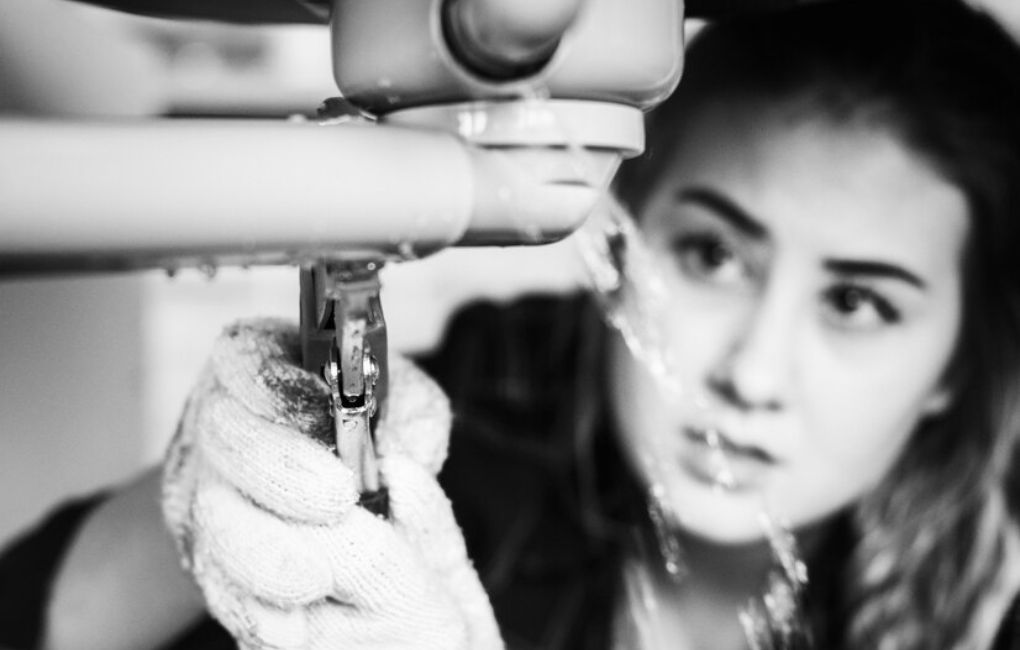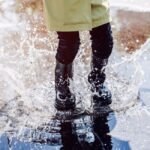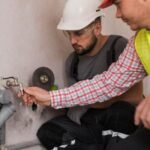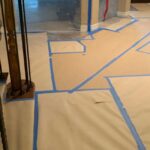Water is the most essential component of life. However, uncontrolled water in your house can be a disaster. Water leaks are experienced in most homes, and if left unattended, they can cause damage to your property and pose health problems. This article provides you with knowledge on how to detect water leaks in your home and how to prevent them in the future.
Signs of a Water Leak in Your Home
Water leakage is often problematic to detect as it is not usually visible immediately, the pipes being inside the wall. However, various signs may indicate that the apartment is leaking.
Sudden Increase in Water Bills
Monitor your water bills closely. Sometimes, the sole indication of a water leakage is a significant spike in your bill. An unexpected increase in water demand, even if it is only a few cubic meters per month, is cause for concern. Compare your current water usage to past bills to identify any significant fluctuations.
Damp or Discolored Patches on Walls or Ceilings
The appearance of wet or discolored wall or ceiling surfaces indicates that moisture has settled under them. These may be damp spots. However, even if a given area of the wall does not look wet but feels cooler than usual, this is a bad signal. This also includes a variety of stains that may be yellow, brown, or rusty. They can generally be on the walls, ceiling, or floor and enlarge or move away from the source as the volume of liquid increases.
Material will Blister and Peel
Blisters in paint or wallpaper form when moisture is trapped under the surface and begins to enlarge upon contact. This is frequently caused by water leaking under the floor or behind the walls.
Musty Smell
A persistent musty smell in your home, especially in areas like basements, crawlspaces, or near plumbing fixtures, can be a sign of mold growth. Mold thrives in damp environments created by undetected leaks. The musty odor can become stronger over time as the mold colony grows.
Mold Growth
If you see visible mold patches on walls, ceilings, floors, or near plumbing fixtures, it’s a strong indicator of a leak. Mold spores can also spread through the air, posing health risks. The color of mold growth can vary, but common colors include black, green, and brown.
Water Stains Around Fixtures
Inspect areas around faucets, showerheads, toilets, drains, the water heater, and under sinks for water stains. These stains can be brown, yellow, or rusty and may appear on floors, walls, or cabinets. The location of the stain can help you identify the potential source of the leak. For example, a stain on the ceiling below a bathroom might indicate a leak in the shower or faucet above.
Poor Duct
If your wood flooring has become outwardly rough, cupped, or ripped, it is likely that liquid bags have leaked someplace. This is most likely an issue with the pipes, appliances, or ventilation. It also applies to laminate floors, which can expand, bubble, and potentially split due to dampness.
Running Water Sounds When No Water is Running
Pay attention to any unexplained sounds of trickling or running water when no taps or appliances are in use. This could be a sign of a leak in a concealed pipe behind walls or under floors.
Being familiar with these signs and their potential causes empowers you to detect water leaks early on and prevent costly repairs. Early intervention can minimize water damage and prevent the growth of mold, protecting your home and your health.
Causes of Water Leaks in Your Home
Several factors can contribute to water leaks in your home:
- Plumbing Issues: Burst pipes, faulty joints, or corroded pipes due to age or improper installation can lead to leaks.
- Roof Leaks: Damaged shingles, clogged gutters, or faulty flashing around chimneys can allow water to seep into your home.
- Appliance Malfunctions: A malfunctioning water heater, washing machine, dishwasher, or refrigerator with a leaking hose can cause significant water damage.
- Foundation Cracks: Cracks in your foundation can allow water to enter your basement or crawl space.
- Poorly Sealed Windows and Doors: Improper sealing around windows and doors can create entry points for water during heavy rain.
Regular inspections of your plumbing system, roof, and appliances can help identify potential leak sources before they cause problems.
Impact of Unattended Water Leaks in Home
Ignoring water leaks in your home can have a domino effect, leading to problems that impact your health, property, and wallet. Here’s a closer look at the potential consequences of unattended water leaks:
Structural Damage
The first point must be that water can damage your house greatly. It is a powerful force that can ruin your home. You think that a simple small leak is not an issue, but over time, it can weaken your house. If a leak is not fixed, construction material can start absorbing the water and can no longer be sturdy.
Over time, wooden support beams start losing their property to bear any weight as they weaken from the moisture. Sagging floors and uneven walls are just some of the issues that can be haunting your nights. In severe conditions, your entire construction may fall. Mining companies set up water damage management systems that can prevent however damage to the building.
Drywall is one of the construction materials that can easily be damaged by water. A few drops of water can crumble the drywall, and the wall can have an unaesthetic look. If water dribbles down the drywall, adds up the wall, or stands in a damp puddle on the floor, it may start warping. Additionally, the foundation can also be greatly affected by the water causing it to weaken over time. Mold can also accumulate under the layer of drywall and ruin it. That will be the time when you will have to hire a specialist and buy brand-new drywall.
Health Risks
Mold thrives in damp environments created by undetected leaks. Mold spores can easily spread through the air, posing a significant health risk to occupants, especially those with allergies, asthma, or respiratory problems. Common health problems linked to mold exposure include:
- Respiratory problems: Mold spores can irritate the respiratory system, causing coughing, wheezing, shortness of breath, and difficulty breathing.
- Allergic reactions: Mold exposure can trigger allergic reactions, leading to symptoms like skin irritation, itchy eyes, and a runny nose.
- Other health problems: Studies suggest potential links between long-term mold exposure and more severe health issues like headaches, fatigue, and neurological problems.
Electrical Hazards
Water is a conductor of electricity. A leak near electrical wiring can cause a short circuit, sparking and potentially starting a fire. Even minor electrical malfunctions due to water damage can pose a safety risk and damage electrical appliances.
Decreased Property Value
Water damage can significantly decrease the value of your property. Potential buyers may be discouraged by the visible signs of damage, the potential for mold growth, and the need for costly repairs. Addressing water leaks promptly minimizes damage and helps maintain the value of your investment.
Taking prompt action to address water leaks protects your health, your home, and your investment. By acting quickly, you can minimize structural damage, prevent the growth of harmful mold, avoid electrical hazards, and maintain the value of your property.
How to Detect Leaks in Your Home
Here are some steps you can take to detect and address water leaks:
- Regularly Check Water Meters: Monitor your water meter readings to identify any unusual spikes in water usage.
- Inspect Visible Pipes and Fixtures: Look for signs of corrosion, cracks, or loose connections around pipes, faucets, toilets, and under sinks.
- Use Leak Detection Devices: Install leak detectors in areas prone to leaks, such as near dishwashers, washing machines, and water heaters. These devices can alert you to potential problems.
- Hire Professionals for Thorough Inspections: Consider hiring a licensed plumber for a comprehensive leak assessment. Professionals can use specialized equipment to locate hidden leaks.
How to Fix Water Leaks
Fixing Water Leaks depends on the severity of the leak:
- DIY Fixes: For minor leaks, you might be able to tighten loose connections yourself. However, for anything more complex, it’s essential to seek professional help.
- Calling a Plumber: For significant leaks, burst pipes, or leaks requiring access to concealed plumbing, contact a qualified plumber immediately. They have the expertise and tools to diagnose and repair the leak efficiently.
- Emergency Actions for Severe Leaks: In case of a major leak, turn off the main water supply valve to minimize damage. Contact a plumber immediately and address any safety hazards like exposed electrical wires.
Preventive Measures to Avoid Water Leaks
By taking proactive steps, you can minimize the risk of water leaks in your home:
- Maintain Plumbing Systems: Schedule regular inspections and maintenance for your plumbing system to identify and address potential problems before they escalate.
- Seal Gaps and Cracks: Inspect your foundation, walls, and around windows and doors for cracks. Seal any gaps promptly to prevent water infiltration during heavy rain or storms.
- Install Water Leak Sensors: Invest in leak detectors and place them in vulnerable areas like washing machine hoses, under sinks, and near the water heater. Early detection helps prevent major damage.
- Monitor Water Usage: Develop the habit of monitoring your water usage regularly. This can help you identify unusual spikes that might indicate a hidden leak.
- Address Roof Issues Promptly: Schedule regular inspections and promptly address any damaged shingles, clogged gutters, or faulty flashing. A well-maintained roof minimizes the risk of leaks.
By following these preventive measures, you can significantly reduce the chances of water leaks in your home, saving time, money, and hassle.
SS Water Restoration Services for Leakage Fixing
At SS Water Restoration, we understand the stress and disruption caused by water leaks. We offer a comprehensive range of water damage restoration in The Colony to address your leakage problems effectively:
- 24/7 Emergency Response: We are available 24/7 to respond to urgent leakage situations and minimize water damage.
- Leak Detection and Inspection: Our experienced technicians use advanced equipment to locate hidden leaks accurately.
- Water Damage Restoration: We employ proven techniques and professional-grade equipment to restore your home from water damage.
- Mold Remediation: If mold growth has occurred due to a leak, our certified technicians safely and effectively remove mold and prevent its recurrence.
- Sewage Cleaning: We handle sewage backups and cleanups efficiently and hygienically.
We prioritize clear communication and keep you informed throughout the restoration process. We aim to get your home back to its pre-leak condition as quickly and efficiently as possible.
FAQs
Here are some frequently asked questions regarding water leaks in homes:
Q: Can I fix a water leak myself?
A: Minor leaks, like loose faucet connections, might be fixable by a DIY enthusiast. However, for anything more complex, it’s best to call a qualified plumber. They have the expertise and tools to diagnose and repair the leak correctly, preventing further damage.
Q: What should I do if I discover a major water leak?
A: In case of a major leak, prioritize safety. Turn off the main water supply valve to minimize water damage. If there is exposed electrical wiring, turn off the power in the breaker box. Contact a professional plumber immediately to address the leak and any potential safety hazards.
Q: How much does it cost to fix a water leak?
A: The cost of water leak repair is determined by the severity of the leak as well as other criteria previously covered in the article, such as plumbing accessibility and labor requirements. We recommend that you consult with us for a more accurate cost estimate, as we will guide you based on the severity of the leak.
Q: How can I prevent water leaks from happening in the first place?
A: Regular maintenance is key. Schedule periodic plumbing inspections, maintain your roof, and monitor your water usage for unusual spikes. Investing in leak detectors provides an added layer of protection.
Conclusion
Although water leaks in houses are not unusual, with sufficient understanding, awareness and immediate action, you can effectively prevent or address them promptly. You can safeguard your home and your health by understanding the signs of leaks, their potential causes, and the importance of timely repairs. At SS Water Restoration, we specialize in using the most reasonable and effective methodology for all leak detection, repair, and restoration works. Contact us to help your home return to its normal state.






